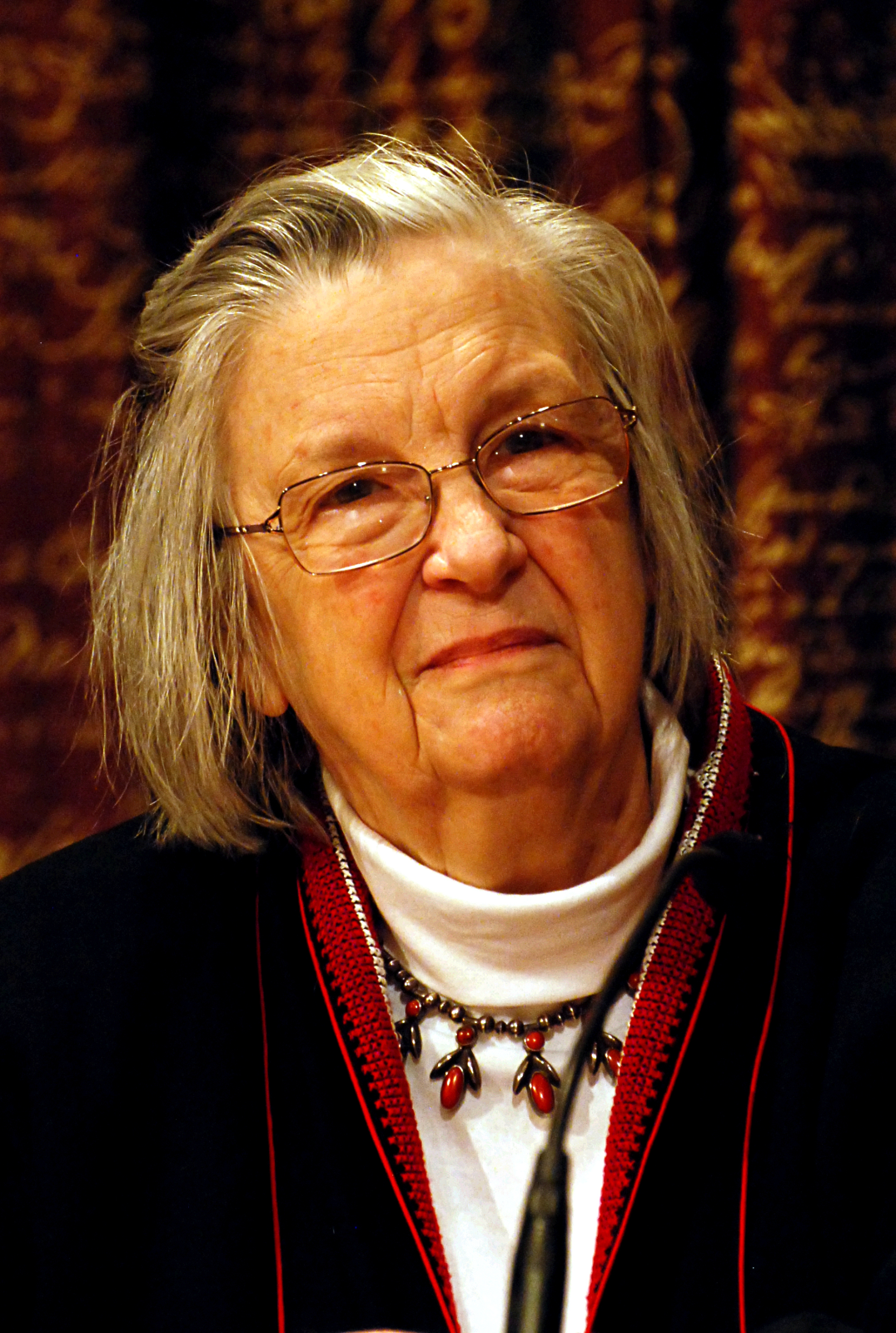Expectations of Brilliance
Today, let's talk about who we expect to be brilliant. The University of Houston Mathematics Department presents this program about the machines that make our civilization run, and the people whose ingenuity created them.
To date 76 people have been awarded the Nobel Memorial Prize in Economic Sciences. Only one of these awardees was a woman. Elinor Ostrom received the prize for showing how people can manage environmental resources often without governmental help. However, as a young woman her application to a graduate program in economics was rejected. She had been discouraged from taking math classes as a girl, and this lack of preparation lead to the rejection. She completed a PhD in political science instead, and became a legend in both fields.
Things worked out well for Professor Ostrom. But how many contributions from brilliant women have been lost or remain unacknowledged? Why are there relatively few women in fields such as physics, mathematics and engineering? There is no simple answer. However, research indicates that our expectations and assumptions may play an important role.
Think of someone who has great intuition, and flashes of amazing insights. Perhaps you thought of Sherlock Holmes, agent Mulder from the X-files, or a scientist like Albert Einstein. Whoever came to mind, it was likely a man. Indeed, genius, and innate aptitude are most often associated with males. For instance, there are nearly three Google searches for 'Is my son gifted?' for every such search involving a daughter..
Sarah-Jane Leslie, Andrei Cimpian and their colleagues decided to see whether such expectations are related to the number of women in different disciplines. They noted that in certain fields of science and the humanities people associate success strongly with raw aptitude. We expect that innate ability is essential for success in mathematics, economics, music composition, and philosophy. The researchers found that the stronger this belief in the need for brilliance in a discipline, the smaller the proportion of women working in it.

Press conference with the laureates of the memorial prize in economic sciences 2009 at the KVA: Elinor Ostrom. Photo Credit: Wikimedia
It could be that women are discouraged from entering these fields, because they are not viewed as naturally brilliant as men. A less likely explanation is an actual difference in natural aptitude. Although this is difficult to assess, much research suggests that natural differences between the sexes are not the cause. Moreover, the number of women in technical fields has been increasing for some time. A shift in our expectations is a more likely explanation than a sudden increase in the number of brilliant women that are born.
Few have the ability and motivation to become truly outstanding doctors, engineers and scientists, but we all benefit from their work. Recently the same group of researchers found that stereotypes about brilliance affect girls as young as six. Young girls associate hard work and good performance in school with their gender, but believe that boys are the ones who are smart. This suggests a sobering conclusion: If we don't want to miss the next female Nobel Prize winner, we need to encourage girls earlier than we thought. Not in college, but in kindergarten.
This is Krešimir Josić at the University of Houston, where we are interested in the way inventive minds work.
(Theme music)
You can find the original research findings here http://science.sciencemag.org/content/347/6219/262. Unfortunately, they require a subscription. A review of the findings can be found here https://www.aaas.org/news/opinions-about-raw-talent-may-steer-women-toward-certain-academic-fields The report is not without controversy, as you can see in the technical comment that followed it (right side of article).
Research that shows that stereotypes about brilliance affect even girls as young as six is discussed here https://www.nytimes.com/2017/01/26/well/family/why-young-girls-dont-think-they-are-smart-enough.html . Follow the link to the original research articles. The authors also provided a nice overview of the research. Also, Ed Yong has written about it in the Atlantic https://www.theatlantic.com/science/archive/2017/01/six-year-old-girls-already-have-gendered-beliefs-about-intelligence/514340/
The list of Nobel Prizes awarded to women can be found here http://www.nobelprize.org/nobel_prizes/lists/women.html. I will likely get a comment on this ' indeed, I am talking about the Swedish National Bank's Prize in Economic Sciences in Memory of Alfred Nobel.
Here is an interesting article about the gender differences in Google searches https://www.nytimes.com/2014/01/19/opinion/sunday/google-tell-me-is-my-son-a-genius.html
The recent movie "Hidden Figures" provides a good examples of extraordinary contributions by brilliant women that have remained unacknowledged for a long time.
Andrei Ciprian and Weiji Ma have provided helpful comments and suggestions.
This episode was first aired on February 7, 2017